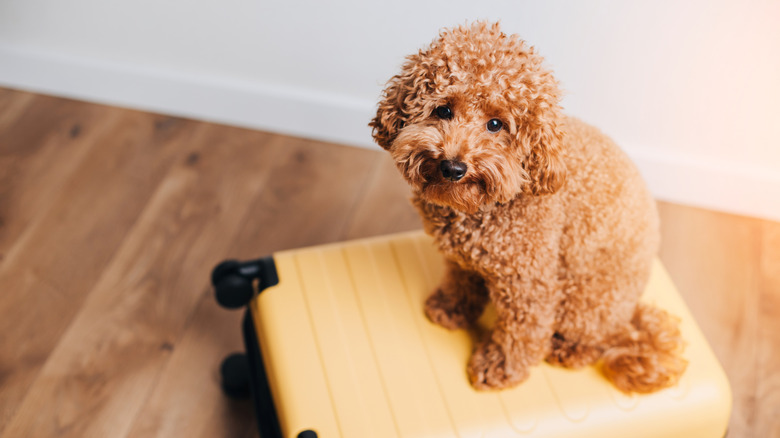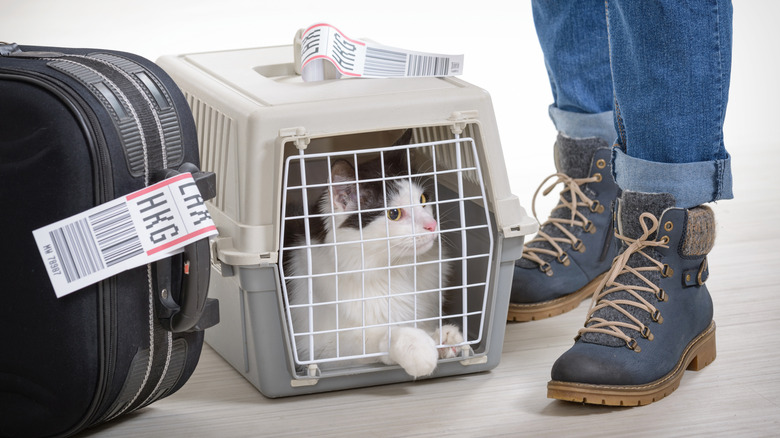The One Crucial Thing To Make Sure Is Up To Date Before Flying With Your Pet
Whenever you fly with your pet, there are many moving parts to consider, from researching pet-friendly airlines to making sure your pet carrier meets the airline's regulations. However, there is one common mistake that people make when flying with pets that can have a significant impact on the travel experience — updating your contact information. While it may seem obvious, it's a small but crucial step that is easy to overlook.
In the checklist of pet preparation, you'll want to ensure the airline you're flying with can contact you in case of an emergency, such as if your dog becomes ill or gets lost. And upon arrival, you'll have peace of mind that your pet will be easily identified in an unfamiliar environment. According to a study by Weenect, a company that makes GPS trackers for dogs and cats, 55.3% of pet loss occurs while an animal is on vacation with its owners. So, it's better to take preventive measures. Verify that the contact information on your animal's collar is correct before departure, and consider adding a temporary travel tag with your cell phone number and an extra contact number at your destination (a friend, family member, or hotel, for example).
But the real hero here is the microchip. These chips, which are the size of a rice grain, contain vital contact information and are implanted into the animal, providing a permanent form of identification to locate your pet in case their collar comes off. According to the American Kennel Club, animals with microchips are three times more likely to be reunited with their owner, which makes it a no-brainer for anyone flying with a pet.
Correct contact information can make all the difference when traveling with a pet
Getting your pet microchipped is a great first step, but the chip itself is worthless unless it's also registered with a national pet recovery database. It may seem obvious, but according to the American Veterinary Medical Association, 40% of microchips are not registered in a national database. Doing so allows veterinarians to scan the chip and quickly find your contact details. Traveling out of the country or planning to do so in the future? In that case, it's a good idea to ask your veterinarian for an ISO-standard microchip, as these have been developed as a global standard that vets in other countries can scan.
If you've already microchipped your pet long ago, you may think that you have nothing to worry about. You'd be mistaken. It's good practice to periodically check that the contact information registered with your chip is up to date and that the database you are registered with is still active. And when you have your regular vet visit, have them perform a scan to be sure the chip is still readable. That way, you can rest assured that anyone who finds your pet will be able to get in contact with you. Also, be sure to check if your furry friend needs a pet passport before flying.
Still not convinced a microchip is important? Take the 2023 case of Paula Rodriguez, whose six-year-old dog, Maia, was lost by Delta Airlines during a layover in Atlanta. The pair were separated for three weeks after Maia escaped from her crate while getting loaded onto a flight to the Dominican Republic. A native of the Dominican Republic, Rodriguez waited from afar until Maia was found running around near the airport cargo area and identified by photos that had been placed at the airport and, you guessed it, her microchip.

